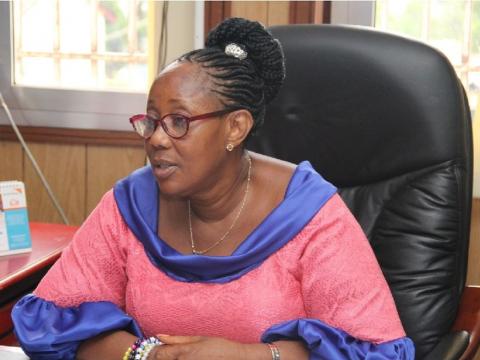By Kemo Cham
Older people in Sierra Leone face a high prospect of death and disability due to their exposure to factors that contribute to cardiovascular disease, a study has found.
The study conducted by the researchers at the University of Birmingham in the United Kingdom revealed that three-quarters of people over the age of 40 in Sierra Leone have at least one health factor that could contribute to cardiovascular disease – creating a ‘ticking time bomb’ of death and disability.
The researchers found that cardiovascular disease risk factors (CVDRFs) such as hypertension, diabetes and obesity are much more common in Sierra Leone than expected, whilst access to health care for these conditions is low. They warned that older people with such multi-morbidity are more likely to contract COVID-19, making getting on top of these conditions useful in reducing the impact of current and future pandemics.
The research, whose findings were released on Thursday, September 10, was conducted with funding from the UK-based Wellcome Trust, a group that include experts in Sierra Leone, USA and UK.
The findings are published in BMJ Open. Key among these findings are that hypertension was seen in over 50% of the population, while smoking is very common (around 25%), especially among younger men.
Some 25% of Sierra Leoneans are also obese or overweight, according to the study, which also found that access to care for individuals with diabetes and hypertension is low, with fewer than 10% of sufferers being adequately treated for these conditions.
According to the study, CVDRFs are more prevalent among people living in urban areas, women, educated, unmarried, and relatively wealthier individuals – all of whom are more likely to receive care for these health conditions.
“Hypertension, diabetes and obesity are much more common than expected and access to care for these conditions is low. This is likely to result in premature death and disability and needs urgent attention from health authorities and policy makers,” Dr. Maria Lisa Odland of the University of Birmingham’s Institute of Applied Health Research, was quoted in a statement announcing the release of the findings of the study.
“Over half of Sierra Leone’s over-40s have high blood pressure and most are not receiving any treatment for this. This alone is a health disaster in the making – a ticking time bomb of death and disability given the strong associations between stroke and high blood pressure.”
Much of Sierra Leone’s health funding comes from overseas aid. In 2017, Sierra Leone received $30 million in aid to tackle HIV/AIDS, yet by comparison received $510,000 for non-communicable diseases, including CVDRFs. Attention has been recently focused on maternal and new-born health and infectious diseases, such as Ebola.
Professor Justine Davies, also from the University’s Institute of Applied Health Research, commented:
“Our research has already informed a national non-communicable disease plan in Sierra Leone, but health system funders need to recognise the extent of the problem with CVDRFs in order to save lives and promote economic wealth.
“With its under-developed health system and high levels of poverty, Sierra Leone can ill-afford to be surprised by an epidemic of non-infectious diseases. We hope our research will help the Ministry of Health and external funders acknowledge what major issues CVDRFs, lifestyle changes and lack of access to care are in Sierra Leone.”
Professor Davies added that the group’s findings highlighted that forthcoming policies in Sierra Leone would need to consider nutritional strategies to prevent CVDRF and try to reduce impacts on the health services of treating these diseases. Future interventions should consider how to develop and enhance awareness about CVDRFs and their consequences, he said.
Copyright © 2020 Politico Online








